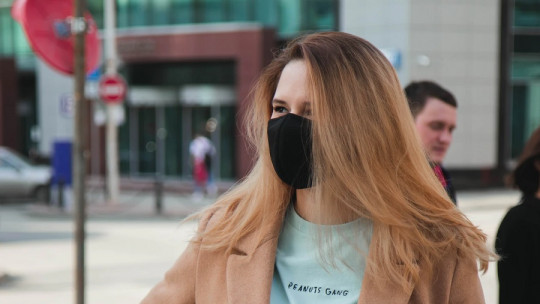Our way of thinking, feeling and interpreting reality is not something that depends solely on us. As much as each person is unique, mental processes are never completely individual phenomena, and they are constantly relating to the context that surrounds us.
Precisely this idea has been evidenced by the coronavirus crisis. This global pandemic has not only had economic, political and medical implications, but has also led to massive psychological changes, including the field of mental health. Among them is a greater vulnerability to problems due to obsessive thoughts, associated with the anxiety produced by the COVID-19 crisis.
What are obsessive thoughts?
Obsessive thoughts are mental contents (either in the form of sensory representations or ideas structured through language, and often both at the same time) that They tend to “invade” people’s consciousness again and again. , making them unable to avoid focusing their attention on them. It is relatively common for these thoughts to end up causing discomfort, either due to their emotional charge (for example, if they are distressing memories) or due to the mere fact that they are repeated over and over again.
We have a clear case of how obsessive thoughts can damage people’s mental health in Obsessive-Compulsive Disorder, a psychopathology in which the person fights to “get rid” of those images from their mind through the performance of ritual behaviors. , such as washing your hands.
Naturally, The context in which one is located greatly influences the ease with which people fall into obsessive thoughts. In a situation of constant stress, it is very likely that a large number of individuals will develop this type of psychological alterations, and therefore, a pandemic like the coronavirus also gives rise to this. These are mainly anxiety problems, generated by the activation of the nervous system that occurs when we focus our attention on these recurring thoughts.
The main problems due to obsessions in a pandemic context
These are some of the main forms that obsessive thoughts can take in the COVID-19 crisis.
1. Fear of contagion
It is one of the most common causes of obsessive thoughts in pandemic contexts. In these situations there is no need to tend towards hypochondria to be afraid of getting sick, of transmitting the pathogen to loved ones, etc. Additionally, when leaving home there are many interactions with the outside that technically lend themselves to the question of whether there is danger: traveling on a crowded bus, using the office bathroom, etc.
2. Exposure to others’ own suffering
Situations of losing loved ones, seeing the elderly get sick… They are experiences capable of leaving a powerful emotional mark that becomes recurring memories.
3. Fear of losing your job
Economic instability produces job insecurity, something that keeps many people on alert and with a tendency to try to anticipate the worst possible scenario even at the cost of your own mental health.
4. Fear that society will collapse
This is a somewhat more abstract fear than the previous ones, and has to do with obsessions about the end of welfare states as we know them. It is not difficult to imagine a dystopian future based on the changes we experience when going through a period of pandemic.
5. Fear of breaking the rules
Along with the measures to prevent the risk of contagion and economic adaptation to this challenge, new regulations appear that, if not followed, can lead to severe penalties. For some people, the feeling of being able to break these rules without knowing it produces a feeling of restlessness that manifests itself in obsessions.
6. Anxiety due to the feeling of surveillance
This is a source of obsessions associated with the previous one: in addition to applying new rules that have been limiting certain freedoms, many States have also begun to monitor the activity of their citizens more: controls at airports, reviews of economic activities, supervised quarantines, etc In the medium and long term, this can cause a state of alert to arise in many people.
Do you want to have professional psychological support?
As we have seen, emotional and behavioral problems derived from the context of the coronavirus crisis can give rise to mental health problems that should not be neglected.
That’s why, If you are looking for psychotherapy services, I invite you to contact me. I am a psychologist specialized in cognitive-behavioral therapy and I serve the adult and adolescent population, both in person in Castellón de la Plana and through the online modality by video call. Through this intervention modality it is possible to overcome the alterations associated with obsessive thoughts based on scientifically validated therapeutic techniques and strategies.









